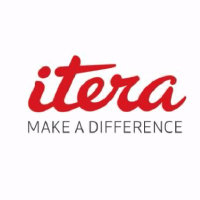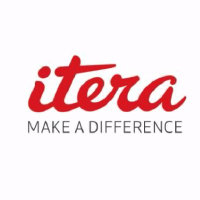
Itera ASA
OSE:ITERA


| US |

|
Johnson & Johnson
NYSE:JNJ
|
Pharmaceuticals
|
| US |

|
Berkshire Hathaway Inc
NYSE:BRK.A
|
Financial Services
|
| US |

|
Bank of America Corp
NYSE:BAC
|
Banking
|
| US |

|
Mastercard Inc
NYSE:MA
|
Technology
|
| US |

|
UnitedHealth Group Inc
NYSE:UNH
|
Health Care
|
| US |

|
Exxon Mobil Corp
NYSE:XOM
|
Energy
|
| US |

|
Pfizer Inc
NYSE:PFE
|
Pharmaceuticals
|
| US |

|
Palantir Technologies Inc
NYSE:PLTR
|
Technology
|
| US |

|
Nike Inc
NYSE:NKE
|
Textiles, Apparel & Luxury Goods
|
| US |

|
Visa Inc
NYSE:V
|
Technology
|
| CN |

|
Alibaba Group Holding Ltd
NYSE:BABA
|
Retail
|
| US |

|
3M Co
NYSE:MMM
|
Industrial Conglomerates
|
| US |

|
JPMorgan Chase & Co
NYSE:JPM
|
Banking
|
| US |

|
Coca-Cola Co
NYSE:KO
|
Beverages
|
| US |

|
Walmart Inc
NYSE:WMT
|
Retail
|
| US |

|
Verizon Communications Inc
NYSE:VZ
|
Telecommunication
|
Utilize notes to systematically review your investment decisions. By reflecting on past outcomes, you can discern effective strategies and identify those that underperformed. This continuous feedback loop enables you to adapt and refine your approach, optimizing for future success.
Each note serves as a learning point, offering insights into your decision-making processes. Over time, you'll accumulate a personalized database of knowledge, enhancing your ability to make informed decisions quickly and effectively.
With a comprehensive record of your investment history at your fingertips, you can compare current opportunities against past experiences. This not only bolsters your confidence but also ensures that each decision is grounded in a well-documented rationale.
Do you really want to delete this note?
This action cannot be undone.

| 52 Week Range |
8.9
13.45
|
| Price Target |
|
We'll email you a reminder when the closing price reaches NOK.
Choose the stock you wish to monitor with a price alert.

|
Johnson & Johnson
NYSE:JNJ
|
US |

|
Berkshire Hathaway Inc
NYSE:BRK.A
|
US |

|
Bank of America Corp
NYSE:BAC
|
US |

|
Mastercard Inc
NYSE:MA
|
US |

|
UnitedHealth Group Inc
NYSE:UNH
|
US |

|
Exxon Mobil Corp
NYSE:XOM
|
US |

|
Pfizer Inc
NYSE:PFE
|
US |

|
Palantir Technologies Inc
NYSE:PLTR
|
US |

|
Nike Inc
NYSE:NKE
|
US |

|
Visa Inc
NYSE:V
|
US |

|
Alibaba Group Holding Ltd
NYSE:BABA
|
CN |

|
3M Co
NYSE:MMM
|
US |

|
JPMorgan Chase & Co
NYSE:JPM
|
US |

|
Coca-Cola Co
NYSE:KO
|
US |

|
Walmart Inc
NYSE:WMT
|
US |

|
Verizon Communications Inc
NYSE:VZ
|
US |
This alert will be permanently deleted.
 Itera ASA
Itera ASA
Itera ASA
Investor Relations
Itera ASA operates as a communication and technology company, which engages in the provision of information technology and communication solutions. The company is headquartered in Oslo, Oslo. The firm delivers user experience solutions, digital platform solutions for business design, software engineering services, service operations and application management, which includes uptime, security, user support, data center, network, database operation, licenses, hardware and applications. Additionally, the Company offers editorial productions, content and campaigns, infrastructure services, project management services, as well as cloud and testing services, among others. The firm conducts operations in Norway, Sweden, Denmark, Slovakia and Ukraine. The company serves clients within the banking and insurance, public, healthcare, energy and utility domains across Nordic countries and internationally.

Itera ASA operates as a communication and technology company, which engages in the provision of information technology and communication solutions. The company is headquartered in Oslo, Oslo. The firm delivers user experience solutions, digital platform solutions for business design, software engineering services, service operations and application management, which includes uptime, security, user support, data center, network, database operation, licenses, hardware and applications. Additionally, the Company offers editorial productions, content and campaigns, infrastructure services, project management services, as well as cloud and testing services, among others. The firm conducts operations in Norway, Sweden, Denmark, Slovakia and Ukraine. The company serves clients within the banking and insurance, public, healthcare, energy and utility domains across Nordic countries and internationally.





























 You don't have any saved screeners yet
You don't have any saved screeners yet
